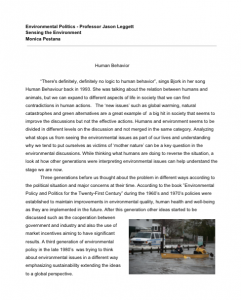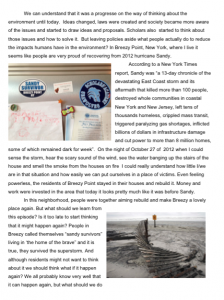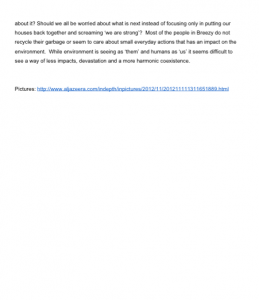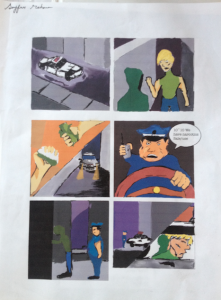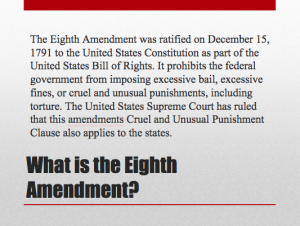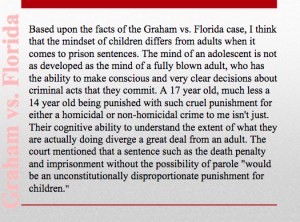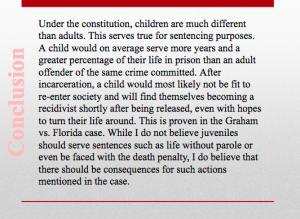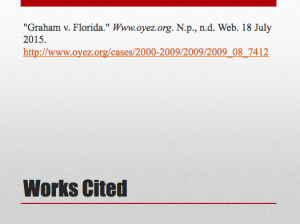Instructions for Amendment Project
1. Be familiar with all 27 amendments and choose one that is personally relevant to you;
2. Research and outline the amendment;
3. Present your findings in a creative and interesting way;
4. “A+” responses show that you definitely know the material you are discussing, you are able to easily explain why the amendment research is important to you, and you make a positive contribution to knowledge about constitutional rights for everyday people with useful information.
5. “B” responses show that you know something about some of what you are sharing, and provide examples and explanations that everyday people would understand regarding constitutional rights.
6. Answers that need revision simply repeat information easily found on Wikipedia and opinion based websites or blogs, or fail to provide useful information for everyday people about constitutional rights.
You may share your findings in a 5 paragraph essay or photo-essay, a powerpoint or 9 minute class talk, or in a poem, skit, cartoon, video, or other creative medium.
To view examples of student work from previous classes click here,
Please complete this project check in assignment by clicking here.
Pleblex, a guide for legal issues in New York City.
One goal of this civic engagement course is to identify a modern problem along with potential community partners that could collaborate to solve that problem. Over the years many students suggested research findings could be useful to others throughout New York City. Students, over 4 semesters, developed the assignment sheet, grading rubric, and ultimately a lot of helpful civic research. One such project involves researching an amendment to the US Constitution and presenting their information in a useful way to everyday people.
We are now considering how best to integrate our work into a shareable site focused on emerging and existing legal and socio-legal challenges. While we study these issues together we can also share our findings to improve policy and our understanding of civic relations. Please click here to answer a few short questions about developing this kind of tool for residents of New York City.
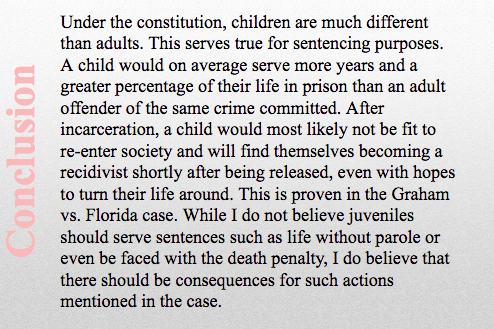
For a PDF Click: photo_essay_monicapestana – Google Docs
Creative Integration
Excerpts from Presentation on 8th Amendment:
Example of a People’s Philosophy from A Dialogue on Food Justice and Global Food (In)security with Prof
Building a Global Community: Urban Farming and an Ecological Lifestyle
By Schontasha Dyce
It is startling to consider that even in the 21st century of abundance there are so many that go without basic necessities including healthy food. Building a strong global community means building communities without poverty. Providing our communities with spiritual, educational, and health care services is a progressive start to making real change in the way we think about sustainable communities for all. One approach to providing the kind of spaces for this development is through composting, gardening, and urban farming, all part of an ecologically based lifestyle.
When we consider all members of our global community we see many who have been severely burdened by poverty, sickness, and without easy access to fresh ingredients for food. As I learned that local, sustainable farming lowers these barriers to our most vulnerable I also discovered these services could reduce costs to families and the government as well as helping the government. Since building strong communities has always been important to me, it made sense for me to think about what is keeping the less privileged, including children and families, around the world from living meaningful lives. An ecological lifestyle, in addition to making my local community stronger, must also be about our communities in poverty worldwide.
Even as technology and commerce progress poverty rates have continued to rise in inner cities and rural areas alike. Statistics provided by the not-for-profit Global Poverty Project show show 1.4 billion people live in poverty. And even in a city that never sleeps thousands face poverty every week as the income gap continues to increase. Another way of counting is that 1 person goes without every 3.9 seconds. An ecological lifestyle brings communities in poverty together to learn about collective farming, composting, and gardening that can yield real food in real time and provide educational opportunities for individuals and families to improve their health and economic understanding.
Sustainable living is an attempt to reduce our individual and collective impact on the Earth’s natural resources. Investing in local and community gardens, where individuals can grow their own food in a designated area shared with others, increases access to affordable, nutritious food anywhere the sun shines. Larger community-level projects can grow out of small scale gardening efforts. For example, urban farming can bring multiple groups of gardeners, farmers, and markets together to bring down costs and provide choices for low-income communities. Further, farmer’s markets, mobile food carts, or composting sites can provide meaningful work opportunities and learning in and out of the community. To tackle the problem of food and poverty communities in general have to change their way of thinking. Composting encourages efficient use of resources and promotes the re-use of “scraps” into a living food for plants in a cycle of food wealth. In the 21st century we must lead to share our knowledge of sustainable living by promoting ecologically based food options and markets, locally and world-wide.
For self-directed research projects click here.
Public Education Amendments Project:
1.
2.
3.
4.
5.
6.
7.
8.
9.
10.
11.
12.
13.
14.
15.
16.
17.
18.
19.
20.
21.
22.
23.
24.
25.
26.
27.
Overview:
Identity: What do I want from this course for my future?
Agency: What do I need from this course to take action?
Advocacy: How can I best share this with those who need it most?
Civic Learning and Democratic Engagement: How can we use democratic thinking to overcome differences in all of our communities to solve modern challenges and identify meaningful, culturally responsive solutions for a sustainable future?

